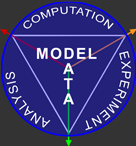
This Data Mining Course is for undergraduate students. The prerequisites are:
- Calculus 2.
- Fluent in one programming language, preferably Python.
- Teacher: Admin User

This Data Mining Course is for undergraduate students. The prerequisites are:
Professor Radhouane Chouchane develops this course.

The concept of integrating GIFT (Generalized Intelligent Framework for Tutoring), Articulate, and Moodle centers around creating an adaptive learning environment that tailors educational experiences to individual learners' needs. Here’s a brief description of how each component contributes to this adaptive learning concept:

DS 540 is a project-based course that includes
two-thirds of class hours of traditional lectures and one-third of class hours
of team project help sessions. The students will meet the instructor for three
class hours per week in the first 11 weeks. In the last 5 weeks, the focus of
the coursework turns to team projects. The instructor will meet the class once
a week, and meet each team separately at least once a week at a mutually agreed
time.

Data Visualization is a project-based course that includes two-thirds of class hours of traditional lectures and one-third of class hours of team project help sessions. The students will meet the instructor for three class hours per week in the first 10 weeks. In the last five weeks, the focus of the coursework turns to team projects. The instructor will give lectures once a week, and meet each team separately at least once a week at a mutually agreed time.
Learning Objectives

Mathematical Modeling is a hybrid learning course that includes multimedia instructional materials, live problem-solving sessions, and team projects. The students will meet the instructor for three class hours per week in the first ten weeks. In the last five weeks, the focus of the coursework turns to team projects. The instructor will meet the class once a week and meet each team separately each week for the project helping sessions.
This course serves dual purposes to prepare the mathematical foundation for Data Science. The first purpose is to enhance students' ability to apply matrices to represent and solve real-world problems. The second purpose is to use System Engineering Principles and Software Tools to model real-world problems.